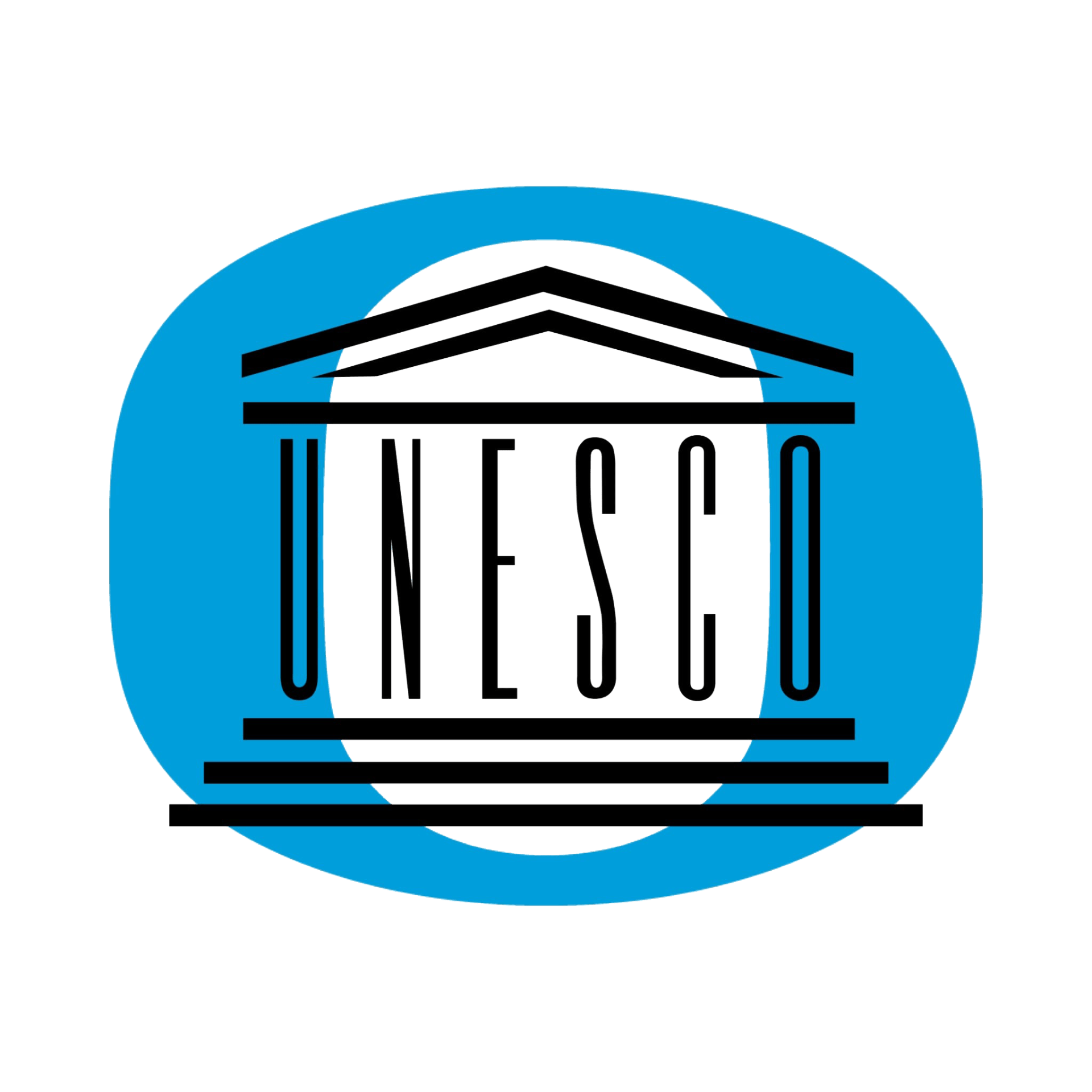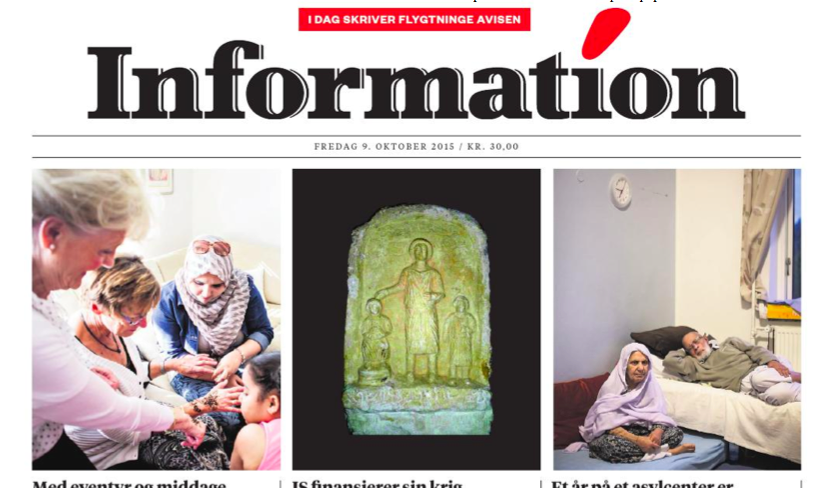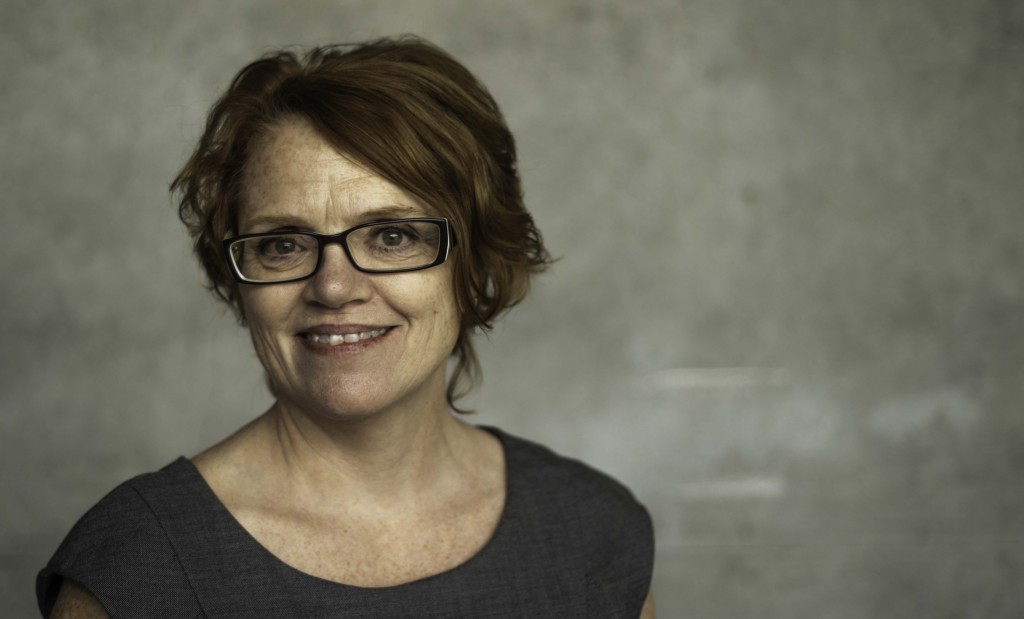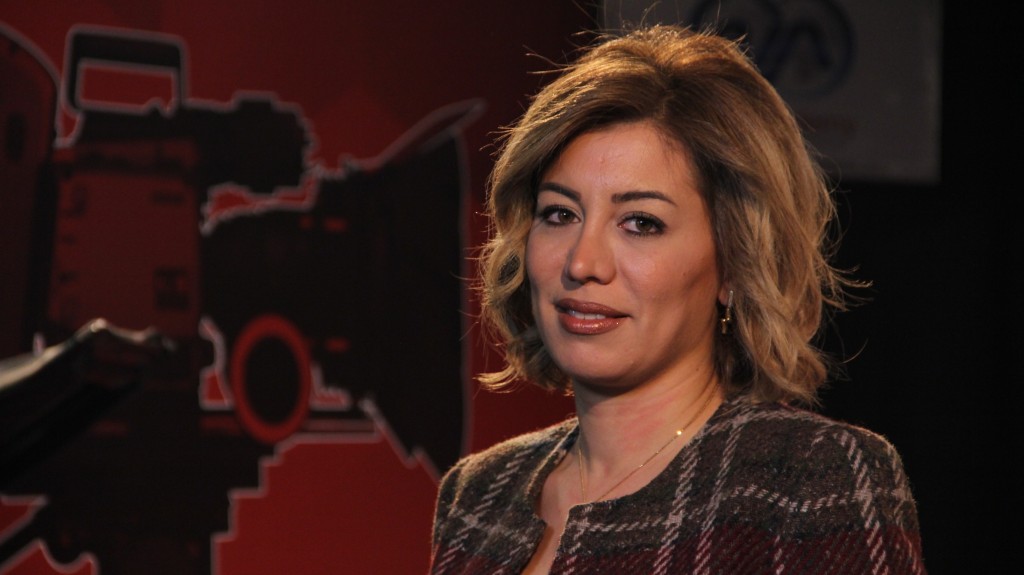When Alex Ahredtsen, a member of the Denmark Parliament, coined the term “pizza Danish” on a local radio program, he was not testing out his idea for a new breakfast pastry, but rather enforcing his anxiety about the country’s refugee crisis.
His reference to “pizza Danish” (or, “pizza Dansk” in Danish) refers to the broken Danish he hears from employees of fast-food restaurants and pizza joints, where one might find migrants employed. He believes that the Danish language is the country’s chief casualty in the migrant crisis.
“It’s just because they cannot figure out how to properly talk Danish,” Ahredtsen said to a Danish radio broadcaster in August 2015. He defended his remark to the Danish newspaper Berlingske, saying that without the language, “we are no longer Danes.”
His comment underscores a larger issue of hostility between the country’s migrant population and Ahredtsen’s political party, the far-right Danish People’s Party (DPP). Its agenda has pushed several measures to dissuade new migrants from arriving.
The hostile situation in the Middle East, most notably the turmoil in Iraq and Syria, has forced millions of refugees to flee to Europe and Denmark plays a pivotal role in the crisis. The country’s political discourse in light of the influx of migrants has divided Denmark between the territorial DPP and the Parliament’s more liberal parties.
In January 2016, the Danish Parliament created legislation that allows authorities to seize cash and valuables from refugees entering the country. This ruling has polarized the country.
“A large group of Danes agree with the government that the migrant limit has been reached and that all borders should be closed,” said Charlotte Aagaard, a senior foreign correspondent with Informatíon. “And on the other side you have the civil activists, who are trying to welcome refugees and organize them on a local basis. Both groups are very vocal in the debate.”
Just a month after the “Pizza Danish” jab, the Danish government ran ads in Lebanese newspapers, printed in both Arabic and English, to discourage people for a number of factors from coming to Denmark.
“The advertisements told refugees how difficult it was to enter Denmark, how hard it was to get family reunification, and so on, and really trying to scare people away,” said Aagaard.
The ad that the government placed in the Middle East stated: “The government will maintain and ensure that there are language requirements in terms of the ability to speak and understand the Danish language” to secure permanent residency in the country.
After Germany accepted a record 1.1-million refugees in 2015, many migrants travel through Denmark – a small nation at the heel of Scandinavia with a population of just over 5.5-million people – to reach Sweden, which has accepted more refugees per capita than any other country in Europe.
While international news is rife with coverage on the refugee crisis, one Copenhagen-based newspaper Informatíon reached the conclusion during an editorial meeting that one voice was lacking in the coverage.
“In spite of all the media coverage of the refugee crisis, we very rarely heard the refugees themselves speaking about their background, their problems, their view on the whole crisis,” said Aagaard. “And therefore we decided to try to find some refugees with a media background and get them to organize, write, and edit the paper from A to Z.”
The publication started with identifying refugees who studied and practiced media by contacting non-governmental organizations International Media Support, Reporters Without Borders, and the Danish Journalist Association.
Since many asylum seekers live in Denmark’s remote and rural communities, as per government policy, many reporters had journeys of up to 6-7 hours to reach the newsroom in Copenhagen. Aagaard says the contracted writers pitched and wrote their own stories independently of the paper’s editors.
“We didn’t interfere with that at all,” said Aagaard, but added that editors helped with feedback and translation.
The language barrier proved to be a central obstacle for many migrants working with Informatíon. The refugee-penned issue was to run in English, but since most of its contributors weren’t well versed in writing in the language, many wrote in their native language, including Arabic and Farsi, which was then translated into Danish.
Reporters worked with Informatíon’s editors for three weeks prior to the special-edition issue to translate the reporters’ works, a significantly longer timeline than the average Danish-language issue.
Not all the reporters were equally practiced. The refugees came from countries of varying media freedom, which invariably affected their schooling as journalists.
“Most of the reporters didn’t have what you could call a traditional European journalist background,” Aagaard said. “Some of them came from dictatorships where they had a very one-sided education as a journalist, or they were simply social media activists. Therefore they didn’t have any formal understanding of being critical toward sources or documenting the different information that you’re providing.”
On Oct. 2015 – the month when the number of refugees arriving in Europe by crossing the Mediterranean Sea was at its highest since the start of the civil war in Syria, according to a report from the United Nations refugee agency – Informatíon published the issue guest-edited by refugees.
An assemblage of articles, columns and poetry constructed the issue, including several stories on the commonplace struggle of a refugee attempting to integrate into Danish society, whether trying to find work in the labor market or feeling detached from family and friends back home, whom they could only contact by text message.
The front-page story, written by a Kurdish refugee, focused on a Kurdish community in Iraq, beset by endless warfare, where mostly women are left behind after many residents fled to seek work and security in Europe.
“It was a story about the Kurdish area in Iraq, but it was also a story about any wartorn refugee community,” Aagaard said.
She added, “It was a very basic human story about all these things that people have in common but that do not differentiate us from each other, but actually unite us across borders and cultures. There were many problematic stories, but I liked the positive story. It was not all black. It was not all problems.”
The issue also ran a report from a rural community in Denmark, where a reporter’s family was introducing itself to a local family during a get-together. The personal column contrasted the initial sentiment of trepidation prior to meeting one another with the reality of the visit.
For many migrants, finding steady work in their new homeland is a particular challenge, since their less-than-fluent command of the Danish language may prohibit them from working as reporters.
“Journalists [among the refugees] face a particular problem because they have to be good in Danish language to work in the Danish media,” said Aagaard. “For most of them they are far from actually landing a job.”
Nonetheless, a few journalists from Informatíon’s Oct. 9 issue remained on staff as freelance writers, including Syrian refugee Lilas Hatahet.
An art critic by trade, Hatahet used to work as a communications director for an opera house in Syria’s capital city, Damascus. In 2012, during the heat of the Syrian Civil War, it was announced that the Assad regime’s military had killed more than 5,000 civilians.
“The media are just curious about ISIS,” she said. “We are the opposite of ISIS. We hate ISIS. They would kill us before they kill anyone in Europe or any countries in the war. But ISIS killed 20 percent, compared to what Assad’s regime has done. We felt tired of the killing machine of al-Assad.”
She likens press freedom in Syria to the creative tactics employed in Iranian films. Since kissing is prohibited from being shown in Iranian films, she says, one director cleverly filmed a shadow on a wall of two lovers kissing.
“If I wanted to critique the regime, I have to write and go around the idea and tell it in a very clever way,” she said. “That made for sometimes very creative ways to tell what we mean.
Hatahet and her two children relocated to Cairo in 2012, where she landed a job as a television anchor on ONTV Live reporting on the revolution happening at home for her program “Hear Damascus from Cairo.”
“I hoped to be the voice of the people because all other media were speaking about politicians, decision-makers, and never reflect the people on the street. They are not us,” she said.
While in Cairo, Hatahet says her passport nearly expired. She visited the Syrian embassy in Cairo to renew it. Embassy workers rejected her application.
“They told me, ‘You want to be a hero? Okay. Pay the price,’” she recalls. “How could I continue my life and work in Egypt without a passport? I can’t earn money. I can’t live. They took everything from me. When I started to feel all the doors closed, I started to think about Europe and travel to any place where I could work with a newspaper.”
She stayed in Egypt until 2014 before using her savings and family connections to find smugglers who would help her leave for Turkey, then to Greece, and finally to Copenhagen by airplane.
“It cost me a lot to have safety for my children,” she said. “The smugglers look at you as a bag of money. They don’t care about your feelings, your situation.”
Hatahet, a single mother, said the trip was a test to be stoic in front of her children.
“I had to smile all the time in front of them. I didn’t want to let them know about all this trouble,” said Hatahet. “They think we are in a journey to find a good country to stay in.”
Hatahet and her children eventually found asylum in Denmark. She now lives in the rural village Asnæs, two hours west of Copenhagen.
“Actually, children integrate very well. They haven’t all silly opinions or stereotypes, like adults,” said Hatahet of her children, aged 6 and 9. “They are more clever. They are more natural. They have friends. They don’t speak about any issues like adults.”
As a freelance journalist, Hatahet says she hasn’t yet had time to go back to school to learn Danish.
She was discovered through International Media Support to work for the October issue.
“Whenever I read something in the news, there are some good reports, but all the time I feel like they’re looking from the window. They never go inside the door. Like me, if I want to speak about Danish society or know a lot, you need to know details. No one understands a refugee’s problems like us.”
A few weeks ago, Halahet published a story on a group of Syrian women forced into sex trafficking in Lebanon for Informatíon.
“Informatíon gives us the voice,” she said. “that’s why they succeed.”
In a culture earmarked by discordant political rhetoric – remarks about “pizza Danish” and all – Aagaard said that Informatíon may have changed the conversation.
“The reporters themselves experienced a changing role; they moved from being victims of immigration policy in Europe to being empowered. For them I think it’s been a big victory for those who took up this opportunity. I think they have really have had a good experience,” she said. “I think we managed to prove that the refugees are a good resource that can contribute to our society.”
For now, she says, “I lost my life, my career in Syria. I had a good life. My house, my car. I lost everything. I built again my life in Egypt and lost it. I have to start from zero. I want, as a human, to feel stability.”
Story by Emerson Malone




